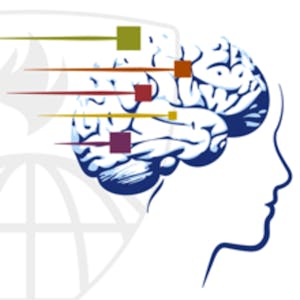Embark on a comprehensive journey through the data science pipeline with the Data Science Specialization. This 10-course program, offered by Johns Hopkins University, provides a thorough foundation in data science, encompassing everything from acquiring and cleaning data to conducting statistical analysis and building predictive models. The capstone project allows you to apply your acquired skills in creating a real-world data product, showcasing your mastery of the material.
Throughout the specialization, you will learn to use R for data manipulation and visualization, navigate the entire data science pipeline, manage projects using GitHub, perform regression analysis, conduct statistical inference, delve into practical machine learning, and develop data products. The hands-on approach ensures you gain practical experience in each aspect of data science, enabling you to build a comprehensive portfolio.
Certificate Available ✔
Get Started / More Info
This comprehensive Data Science Specialization covers essential topics including R programming, data cleaning, exploratory data analysis, statistical inference, regression models, practical machine learning, developing data products, and a capstone project.
Gain proficiency in essential tools and study design concepts, and learn to set up R, R-Studio, and Github. This module provides a foundational understanding of the data science environment, ensuring you are well-equipped for the subsequent modules.
Master R programming language concepts, configure statistical programming software, and learn to collect and analyze detailed information using R profiler. This module equips you with the critical programming skills necessary for data manipulation and analysis.
Understand common data storage systems, apply data cleaning basics to make data "tidy," and learn to obtain usable data from various sources including the web, APIs, and databases. This module focuses on preparing data for analysis, a crucial step in the data science pipeline.
Delve into analytic graphics and advanced graphing systems in R, and learn to apply cluster analysis techniques to identify patterns in data. This module provides essential skills for exploring and visualizing data, enabling you to derive meaningful insights.
Organize data analysis for reproducibility, write up reproducible data analysis using knitr, and publish reproducible web documents using Markdown. This module emphasizes the importance of reproducibility in data analysis and equips you with the necessary tools for this purpose.
Understand the process of drawing conclusions from data, describe variability and distributions, and make informed data analysis decisions using p-values, confidence intervals, and permutation tests. This module provides a fundamental understanding of statistical inference in data science.
Gain proficiency in regression analysis, least squares, inference, ANOVA, and ANCOVA models. Investigate analysis of residuals and variability, and explore novel uses of regression models. This module provides essential skills for conducting regression analysis in data science.
Understand the basic components of building prediction functions, learn about machine learning methods such as regression or classification trees, and explore the complete process of building prediction functions. This module delves into the practical application of machine learning in data science.
Develop basic applications and interactive graphics using GoogleVis, create interactive annotated maps with Leaflet, and build an R Markdown presentation that includes data visualization. This module focuses on developing data products and effectively communicating findings to a mass audience.
Create a useful data product for the public, apply exploratory data analysis skills, build an efficient and accurate prediction model, and produce a presentation deck showcasing your findings. This module encapsulates the culmination of your learning, providing the opportunity to apply your skills in a real-world scenario.
Discover the power of storytelling in data analysis with this guided project. Learn to captivate your audience and convey insights effectively.
Data Visualization with R empowers learners to create a wide range of visualizations, from basic charts to interactive maps and dashboards, using R and related packages....
Learning SAS: Data Types, Naming Conventions, and Resources
Social Network Analysis is a course that delves into the science of social networks, exploring their structure, evolution, and influence. Students will learn to...